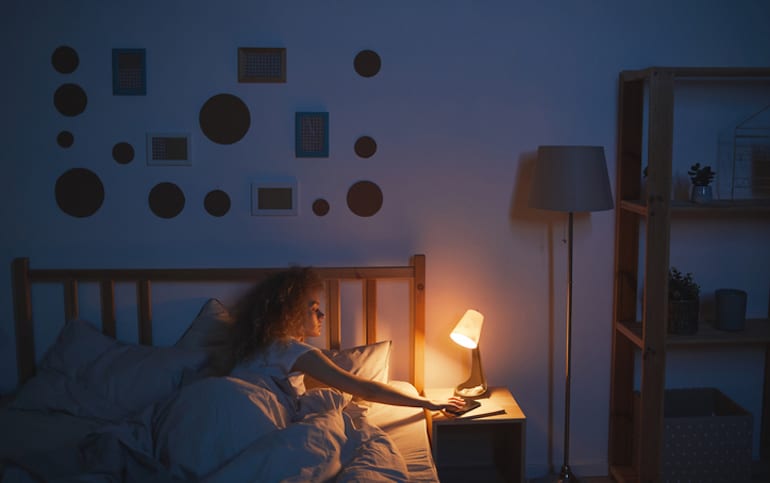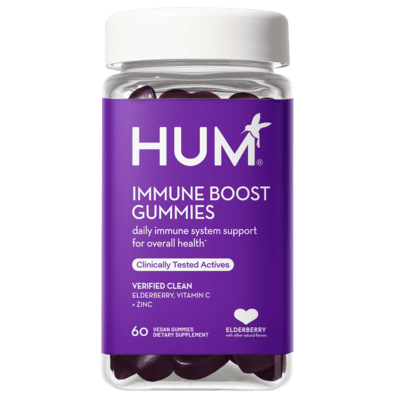Medically Reviewed By
Gaby Vaca-Flores, RDN, CLE
Registered Dietitian Nutritionist
Sleep and the immune system are inextricably linked. Here, renowned sleep expert Dr. Chris Winter helps us explore the ties between sleep and immunity.
There’s a reason why you probably find your eyelids heavy with sleep and you just want to curl up on the couch when you’re sick: Your body needs sleep to ensure your immune system is functioning optimally. But sleep is just as important for making sure your defenses are bolstered at other times, as well.
However, according to a 2016 report from the Centers for Disease Control (CDC), more than a third of adults sleep less than seven hours a night—the minimum threshold they suggest to avoid greater health risks.
Aside from helping your immune system, high-quality sleep benefits your overall health by:


- allowing your body and mind to recharge
- maintaining energy and metabolic homeostasis
- aiding stress management

How does sleep improve your immune system?
Here’s a closer look at how sleep affects your immune system.Sleep Reduces the Impact of Stress
“When sleep is disrupted, we see elevated levels of cortisol and other stress hormones,” Dr. Winter begins. “Over time, this can have deleterious effects on our ability to mount a robust immune response to the various pathogens in our lives.” Specifically, a 2020 review explains that disrupted sleep leads to an uptick of hypothalamic–pituitary–adrenal (HPA) axis activity. The result? More stress hormones circulating in the body. As the American Psychological Association warns, long-term stress “can ravage the immune system through too much wear and tear” and weakened T cell responses. T cells ward off specific invaders via the body’s adaptive immune response. On the flip side, with quality sleep, your hormones have a better chance of following a regular circadian release pattern.Sleep Supports T Cell Production
Now, back to those T cells. Dr. Winter cites a 2008 study illustrating how immune system function is dependent on circadian rhythms and consistent, quality sleep to boost the body’s response against foreign pathogens. Although this study used a small sample size, he says that it “demonstrated that T cell production was higher at night, [indicating] a clear circadian effect.”Sleep Enhances T Cell Function
More recently, a 2019 study discovered another link between sleep and immunity regarding T cells: Researchers found that integrin activation and T cell function was higher in well-rested participants than those who stayed up all night. T cells require the activation of integrins (a type of sticky protein) to bind to and destroy harmful invaders. Integrins become less adhesive in response to stress—which, as we saw above, is exacerbated by a lack of sleep and can weaken immunity. Simply put, fewer stress hormones and pro-inflammatory compounds from quality sleep equate to stickier integrins and stronger immune function.Sleep Helps Regulate Inflammation
Think one night of poor sleep doesn’t matter? It turns out that losing even a few hours of sleep for a night can trigger inflammation, according to a small 2008 study in Biological Psychiatry. This carries over in the long run, too. A 2020 study of 1,600 middle-aged or older adults found that ongoing fragmented sleep was associated with chronic inflammation. Chronic inflammation is associated with countless health issues, and high-quality sleep is just one way to keep it at bay.Sleep Is Protective Against the Common Cold
By now, it’s clear that you can get a natural immune boost year-round if you clock in enough zzZz’s. One tangible benefit you may experience is fewer colds. In a 2015 study, the sleep patterns of 164 healthy adult men and women were evaluated over seven consecutive days. Participants who slept for less than six hours per night were at greater risk of developing the common cold than those who slept over seven hours. Researchers believe this may be attributed to a link between sleep deprivation and reduced production of specific cytokines involved in the immune response.
How to Sleep Better for Stronger Immunity
While it’s great to understand how sleep strengthens the immune system, it’s even more beneficial to learn how to improve sleep so you can reap all of these benefits and more. That said, here are three parting sleep tips from Dr. Winter:- Always set adequate time to sleep. The CDC recommends a minimum of seven hours of rest per night, although you may hear that eight hours is the ideal amount. Meanwhile, other experts recommend focusing on completing full sleep cycles, which last about 90 minutes each, so seven and a half hours may be a better target. Aim to follow this range and “try to sleep on a consistent sleep schedule,” Dr. Winter shares.
- Tap naps strategically to make up for deficits. The trick here is to take these naps as soon as possible after losing valuable hours of shut-eye. “If your boss keeps you late, it’s okay to make up for the lost time in bed with a nap on Saturday—but it needs to be this Saturday, not a month from now,” he advises.
- Set conditions for the best quality sleep. Dr. Winter says this includes limiting caffeine and alcohol intake well before bedtime. Instead, you may want to swap these drinks for calming nighttime recipes. Additionally, he urges everyone to “sleep in a comfy, quiet, cool, and dark environment.”
More like this









